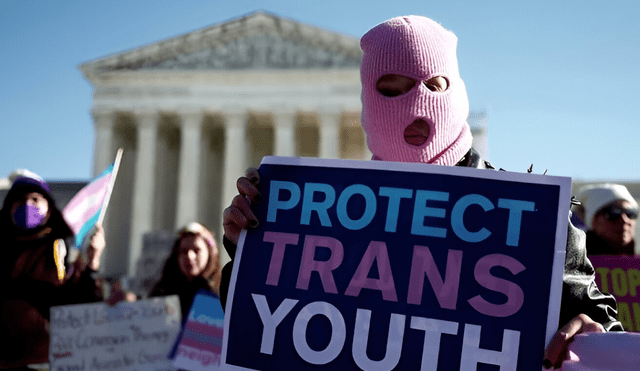Supreme Court backs Tennessee law restricting gender-affirming care for transgender youth
Ruling in Biden v. Tennessee impacts over 110,000 teens; Roberts writes majority opinion, Sotomayor dissents.

The U.S. Supreme Court has upheld Tennessee's limits on medical care for transgender youth, a watershed moment in the legal battle over gender-affirming care. In a 6–3 decision issued Wednesday, the court confirmed that Tennessee's law forbidding physicians from prescribing hormone therapies and puberty blockers to youth wanting to transition, except for certain medical disorders unrelated to gender identity, is good law.
The case was brought by the Biden administration along with a group of families with transgender youth from Tennessee, is the first of its kind to be heard by the nation's highest court. This effort comes as many states with Republican-led legislatures have moved aggressively to pass similar law, leading to a patchwork of law across the country. The decision sends a not-so-subtle green light to other states who will restrict medical care for transgender youth, also lowering the bar for future challenges, making it harder to strike down similar bans in states across the country.
Impact on trans youth and legal landscape
Tennessee's law, called SB 1, specifically prohibits treatment for minors to affirm a gender identity that is different from their sex assigned at birth. It prohibits hormone therapy and puberty blockers for that purpose - and punishes physicians who provide those things. While gender-affirming surgeries were also prohibited under the law, those provisions were not implicated in the case before the Supreme Court.
This law was challenged by three transgender minors and their families, and their physician treating youth with gender dysphoria. While lower courts made varying rulings regarding its constitutionality, a divided appeals court ultimately allowed SB 1 to take effect in 2023. According to the Williams Institute at UCLA, more than 110,000 teens live in the states with medical restrictions like Tennessee's.
Roberts and Sotomayor present starkly different perspectives
Chief Justice John Roberts expressed the view that the legal system is not equipped to resolve complex medical and ethical disputes that are constantly changing. According to Roberts, when laws capture areas of active societal deliberation, the court must be circumspect when the Constitution does not provide an answer. He suggested that neither the emotional intensity of the issue, nor the political considerations matter, as it is solely up to lawmakers to draw the lines.
In a vehement dissent, Justice Sonia Sotomayor argued that the majority's opinion allows states to quietly incorporate discriminatory measures into law. Justice Sotomayor argued that by not recognizing obvious patterns of unequal treatment, the decision erodes the quality of the Constitution's protections. Her concern was how simply government can now legislate similar measures using neutral wording that could disguise the unlawful intent.













